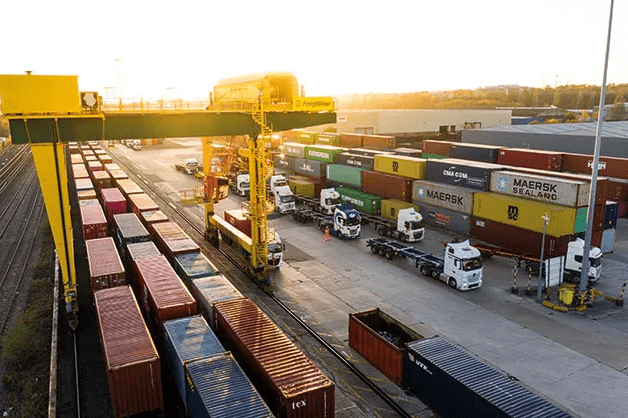CMA CGM’s Freightliner Acquisition: A Defining Step for Intermodal, Decarbonisation, and the Future of Freight
CMA CGM’s Freightliner Acquisition
The announcement that CMA CGM Group will acquire Freightliner, the UK’s largest maritime intermodal operator, marks a transformative moment for the freight and logistics industry. At ZeroMission, we see this as a pivotal move that strengthens not only the UK’s intermodal landscape but also the global push towards lower-carbon, more resilient supply chains.
Why this matters
Freight is at a crossroads. With emissions reduction targets tightening across Europe, operators must shift away from road-only freight models and embrace intermodal solutions that connect sea, rail, and road more seamlessly. CMA CGM’s acquisition delivers exactly that: an integrated ecosystem where containers can move more efficiently from ship to rail, reducing congestion, costs, and carbon emissions.
Unlocking synergies for decarbonisation
By integrating Freightliner’s vast UK operations, over 500 trucks, 900 trailers, and a leading rail freight network, CMA CGM is positioned to accelerate modal shift. Rail produces, on average, 76% fewer CO₂ emissions than road freight per tonne-kilometre. Every container that transfers to rail instead of road represents a measurable gain for decarbonisation.
Rodolphe Saadé, CMA CGM Group Chairman and CEO, was clear in his remarks: this is not just a market expansion, it is a concrete step towards expanding lower-carbon transport options. For ZeroMission, this is exactly the type of bold investment that proves sustainability and profitability can align.
Strengthening UK supply chains
The UK’s freight and logistics sector is under pressure to decarbonise while also maintaining reliability. With Freightliner continuing to operate independently under its strong management team, customers can expect continuity in service while benefiting from CMA CGM’s global scale and capital strength. The deal ensures stronger connections between UK inland terminals, major ports, and wider European networks.
What this signals for fleets and operators
Modal shift momentum: This deal reinforces rail as a backbone of future freight operations.
Customer confidence: With both Freightliner’s proven operational expertise and CMA CGM’s global reach, fleets can trust in stability and innovation.
Decarbonisation leadership: Aligning rail with maritime and road creates measurable opportunities for cutting emissions across the full logistics chain.
New opportunities: For fleet operators and logistics planners, this signals increased demand for integrated digital tools, predictive planning, and carbon-reporting solutions, areas where ZeroMission supports industry leaders daily.
ZeroMission’s view
At ZeroMission, we believe this acquisition is bigger than a business transaction. It’s a signal to the entire sector: supply chain decarbonisation is no longer a future aspiration, it is being built now, through structural shifts in how goods move.
As CMA CGM and Freightliner align, the logistics industry will have a clearer path towards net-zero freight, supported by intermodal efficiencies, strong infrastructure investment, and digital-first planning. For fleets and shippers navigating the transition, the message is simple: the future of freight is integrated, lower-carbon, and already on the rails.

